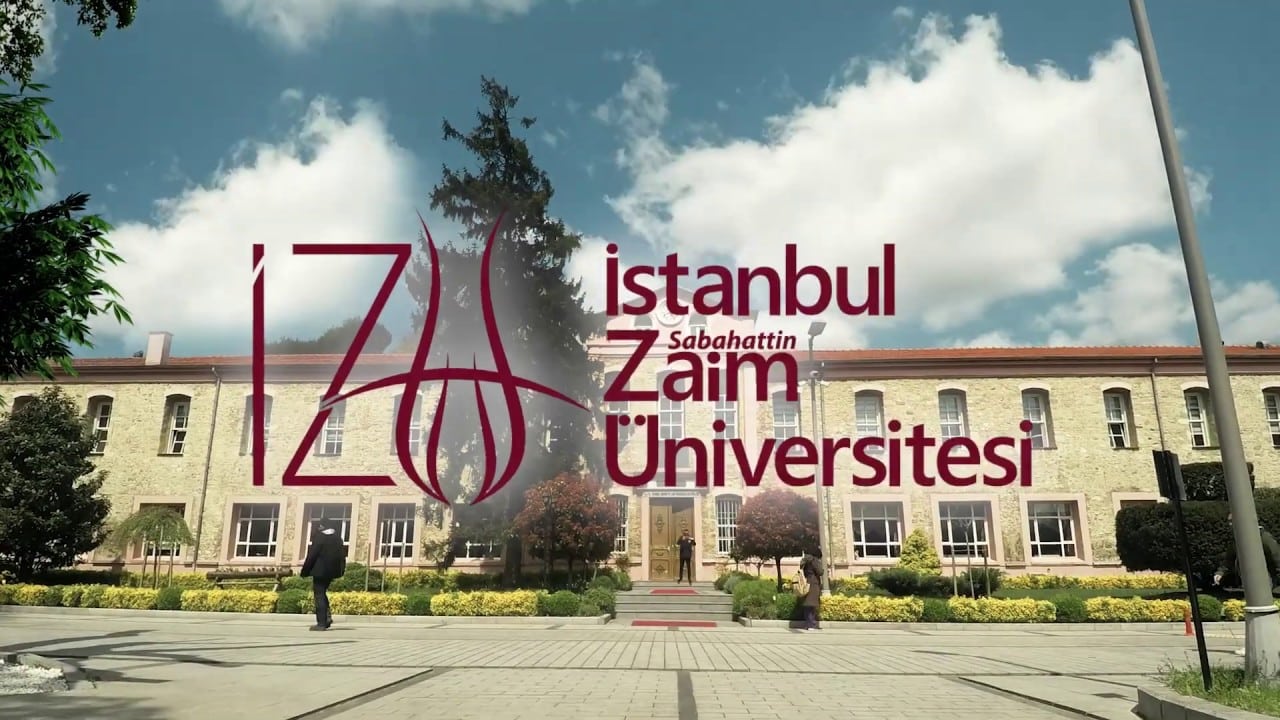Islamic studies
Specialty
Religious studies
Degree
Bachelor's
Master
PhD
Language
Turki, English
Duration
4 Years
Start Form
4800$
جدول المحتويات
Islamic studies is one of the most important disciplines in Turkey, deeply rooted in the Quran and Sunnah. Many Arab students, especially Muslims, aspire to study Islamic studies in Turkey. Turkey has been a prominent Islamic nation since the Ottoman era and continues to be so. The appeal of studying in Turkey lies in its modern and advanced educational system, which offers comprehensive programs in Islamic studies. In this article, we will highlight the key details of the Islamic studies program in Turkey.
What is the Islamic Studies Program?
The Islamic studies program is an academic curriculum designed to provide students with an in-depth understanding of Islamic culture and religious heritage. This program aims to enhance students’ knowledge of various aspects of Islam, including history, jurisprudence, theology, and exegesis. It also explores the influence of religion on different societies and cultures. The program seeks to examine the evolution of Islamic thought over the ages and how Muslims have interacted with social and political changes. Students delve into core Islamic concepts and study the religious and spiritual texts that form the foundation of the faith.

Additionally, the program offers students the chance to understand the religion from multiple perspectives, including comparative studies between Islam and other religions, which fosters cross-cultural communication. It focuses on developing research and critical analysis skills, enabling students to engage with religious texts and ideas in an enlightened and scholarly manner.
Studying Islamic Studies in Turkey
Studying Islamic studies in Turkey offers a unique educational opportunity for students seeking a deeper understanding of Islam, its history, and its culture. Turkey’s unique geographical location, bridging East and West, makes it a cultural and historical crossroads. This enriches the study experience with a diverse cultural and historical dimension.
Turkish universities offering Islamic studies programs provide a diverse educational environment that combines traditional knowledge with modern academic approaches. The curricula in these programs offer an integrated study of Islam, covering historical, literary, jurisprudential, and exegetical aspects. The program also examines the impact of Islam on philosophy, arts, and sciences within Turkish and global contexts. Students benefit from access to numerous libraries and research centers with rich resources in Arabic, Turkish, and other languages, allowing them to explore a wide range of texts and references.
Turkish universities also offer multi-language Islamic studies programs, helping students to engage with both classical and modern texts using contemporary analytical tools. Besides academic studies, living and studying in Turkey gives students the opportunity to interact with a rich religious and cultural community, enhancing their personal and academic experiences. Turkey’s educational infrastructure, along with its rich cultural and religious traditions, provides a conducive environment for students seeking a comprehensive and balanced understanding of Islam.

What Do Students Study in the Islamic Studies Program?
In the Islamic studies program, students cover a diverse array of courses and skills aimed at providing a comprehensive understanding of Islam from various angles. These courses cover historical, textual, cultural, and philosophical aspects, helping students develop a set of analytical and critical skills. Here is an overview of what can be studied in this program:
1) Courses
- Quranic Studies and Exegesis: Analyzing Quranic texts with various traditional and modern interpretative methods, understanding the religious and historical contexts.
- Prophetic Traditions: Studying and documenting the Hadith, understanding the life of Prophet Muhammad (PBUH), including his biography.
- Jurisprudence: Exploring Islamic laws and rulings and their application in different contexts, including the study of various legal schools and their development.
- Theology: Examining core Islamic beliefs such as monotheism, prophethood, and the afterlife, and how these beliefs have evolved over time.
- Islamic History: Reviewing the history of the Islamic world from its beginnings to the modern era, focusing on major events, the development of Islamic empires, and political and social influences.
- Sects and Schools: Studying the different sects and schools within Islam, including Sunni and Shia traditions, and their impact on jurisprudence, history, and politics.
- Arabic Language: Mastering Arabic as it is the language of the Quran and essential Islamic texts, including studying grammar, morphology, and rhetoric.
- Islamic Culture and Arts: Exploring the impact of Islam on literature, arts, and architecture, and how Islamic values are reflected in various cultural and artistic expressions.

2) Skills Acquired
- Textual Analysis: Developing the ability to critically analyze religious texts and understand their meanings and contexts.
- Research: Gaining skills in research and analysis, including using primary and secondary sources to produce in-depth academic research.
- Academic Writing: Enhancing academic writing skills to clearly express ideas and conduct organized scientific research.
- Critical Thinking: Learning to evaluate and interpret Islamic ideas and concepts objectively and critically.
- Communication: Acquiring effective communication skills for discussing Islamic topics with diverse audiences, including through lectures and articles.
- Cultural Understanding: Appreciating cultural and religious diversity within the Islamic world and understanding how culture influences religious practices.

Duration of the Islamic Studies Program in Turkey
The duration of this discipline in Turkish universities is typically 4 years, divided into 8 semesters. The teaching methods and structure of the program may vary from one university to another, but generally, it does not exceed four academic years. However, if a student is not proficient in Turkish or English, the university may require a preparatory year for language proficiency, extending the study duration to five years.
For a master’s degree, the duration of this discipline in Turkey is two years, while a doctorate in Islamic studies usually takes four years or more.
You can register with us now at Safa Company, which will accept your university admission easily
Safa Company is your first educational companion🎓 for communicating on WhatsApp🎓
Top Turkish Universities for Islamic Studies
Several Turkish universities offer programs in Islamic studies to accommodate the many students interested in this field. These programs produce graduates proficient in Sharia sciences, jurisprudence, and Islamic studies, benefiting from high-quality education and superior academic standards. Among the top universities are:
- Istanbul Medipol University
- Istanbul Aydin University
- Bahcesehir University
- Biruni University
- Uskudar University
- Sabahattin Zaim University
Note: You can find details about each university through the provided links.

Islamic Studies at Sabahattin Zaim University
Sabahattin Zaim University is one of the leading private universities in Turkey, offering various disciplines in Sharia sciences, including Islamic studies. The university is known for its high educational standards and prestigious reputation, along with several unique advantages.
Advantages of Sabahattin Zaim University
- International Educational Environment: Sabahattin Zaim University provides a global learning environment with modern technological resources to achieve the highest levels of academic training and education.
- Innovative Educational Model: The university offers a specialized and genuine knowledge in various disciplines and study programs.
- Advanced Research Facilities: Equipped with modern technology and a robust infrastructure, the university’s scientific laboratories offer students and academics ample research opportunities.
- Extensive Library Resources: Sabahattin Zaim University boasts a large library that aids in the development of education and student enlightenment across various disciplines, supporting scientific research activities.
- Counseling Centers: To enhance students’ mental and social well-being, the university includes counseling centers staffed with qualified experts providing personal and psychological advice.
- Modern Infrastructure: The university features modern classrooms, laboratories, and research facilities.
- Large On-Campus Library: The campus houses a vast library with numerous valuable scientific references and resources, ensuring students have access to necessary information for their studies.
- Cultural and Social Activities: The university promotes cultural and social engagement through competitions, concerts, and various other activities organized by student clubs.
- Secure Student Accommodation: Sabahattin Zaim University offers safe and well-equipped on-campus housing, eliminating the need for students to commute using public transportation in Istanbul.

Costs of Studying Islamic Studies in Turkish Universities
Studying Islamic studies in Turkey is relatively affordable compared to other European universities. Tuition fees vary depending on the university and the study program. For instance, annual tuition fees at private Turkish universities offering this program range between $4,000 and $8,000. This reflects the availability of the program in many universities with varying costs depending on their educational standards and the language of instruction.
Additionally, students should consider living expenses, accommodation, and other personal costs during their studies. These expenses can vary based on the geographic location and living standards, including the availability of transportation and the cost of goods and services.
Opportunities
Islamic studies open up diverse career opportunities for graduates. Students can utilize their knowledge in various fields, ranging from education and research to social activities. Here are some of the main career opportunities in this field:
- Academic Teaching: Graduates can work as teachers in secondary schools or as faculty members in universities and academic institutes, teaching subjects like jurisprudence, exegesis, Hadith, and Islamic history.
- Scientific Research: Many graduates find opportunities in academic research, working as researchers in universities or research centers, focusing on areas like Quranic studies, philosophy of religion, or Islamic history.
- Religious Guidance: Graduates can work as Imams or Sheikhs in mosques, providing religious guidance, preaching, and teaching Islamic principles to local communities.
- Writing and Authorship: Some graduates choose to work as writers or authors, producing books or articles on religious and historical topics, including academic writing, or writing for magazines, newspapers, or digital content.
- Non-Governmental Organizations: Many NGOs working in areas like human rights, education, and humanitarian aid need specialists in Islamic studies for consulting, training, and working on projects related to Muslim communities.
- Cultural Institutions: Opportunities include working in museums, cultural centers, and exhibitions, contributing to preserving and teaching Islamic cultural heritage to the public.
- Government Institutions: Jobs can include working in government bodies dealing with religious minorities, cultural affairs, or international relations.
- Training and Consultancy: Some graduates offer consulting and training services to institutions or individuals on topics like religious education, religious leadership, or cross-cultural communication.
- Media: Graduates can work as reporters or analysts in media outlets, providing analyses and information on religious and cultural issues.
- International Relations: In the context of international organizations, graduates can help promote understanding of Islam and apply cultural understanding principles between countries.
Specialty Price for Islamic studies in Turkish Universities
| # | List of universities | Turkish | English | Enroll |
|---|---|---|---|---|
|
1 |
Sabahattin Zaim University |
7000$ |
- |
|
|
2 |
Ibn Haldun University |
4800$ |
4800$ |
Related Programs
Follow the latest programs
No related posts found.



Nothing but I wish study your university